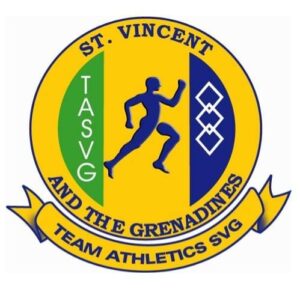A Case for Sport Planning in SVG
For a very long time we have been making the point in this Column and elsewhere that planning is an important feature of development.
Numerous scholars around the world continue to argue that it is often the case that small, poor developing nations are known for lopsided development. This is the result, for the most part, of either little or no attention being paid to appropriate planning.
South American scholar, Andre Gunder Frank, in his epic work, Development of Underdevelopment, explained that part of the colonising experience was the systematic strategy on the part of the colonisers of exploiting the resources of the exploited countries in the name of ‘development.
It is an unfortunate reality that colonisation often left the colonised countries without the capacity to understand the importance of planning. This may well still be evident in many of the colonised nations, St Vincent and the Grenadines being one of them. Unfortunately, despite claims of an ‘education revolution’, there is evidence, almost everywhere, of inadequate planning.
Sport Policy
Following election to office in 2001, many Vincentians expected that given the content of the criticisms levelled at the previous government administration by the Unity Labour Party, while in Opposition, and the advocacy for meaningful change in the lead up to general elections which they won in that year, development planning would have been a priority. Unfortunately, Vincentians involved in sport, are yet to see evidence of a change in the way things are done in sport, enough for them to feel satisfied.
The colonisers were adept at socialising those they colonised into believing that they were working in the latter’s best interest, despite evidence to the contrary. Franz Fanon carefully explained the debilitating impact of the socialising process on the exploited.
In St Vincent and the Grenadines, it is the National Olympic Committee (NOC) that initiated work on. The establishment of a National Sports Policy, in the 1990s. The NOC had expertise from the then Commonwealth Sport Development Officer for the Caribbean, Colin Higgs, of Canada. He coordinated the initial consultation that engaged sports administrators, media personnel, business leaders and sport enthusiasts.
The NOC also received funding from the Commonwealth Games Association and NOC of Malaysia to host a Caribbean Conference on the formation of national sports policies which was held at the Jaycees Complex in Stoney Ground, Kingstown.
The government at the time deliberated on the national sport policy that was developed and eventually approved it.
Since taking office in 2001, the government of St Vincent and the Grenadines twice revisited the national sport policy. It can be said, however, that much of the policy is either not taken seriously or completely ignored.
Policies are often developed for the purpose of guiding the work that must be undertaken. Unfortunately for sport in this country, the policy does not appear to be of much help in what is done in sport. There is too much politics in the government’s approach to sport. The policy is hardly ever mentioned.
Not at all surprisingly, for example, in the lead up to the general elections of 2015, the National Lotteries Authority (NLA), ostensibly committed to funding ‘sport and culture’ in St Vincent and the Grenadines, borrowed $6.5m from the National Insurance Services (NIS), ostensibly, to develop sport infrastructure in the country. One is uncertain as to the precise work done on existing infrastructure at the time. The proximity of the loan just prior to general elections may well have left many in sport pondering as to the ‘politics’ of it all.
Cricket World Cup
St Vincent and the Grenadines hosted some goat cook cricket matches for the Cricket World Cup of 2007. There was massive infrastructural work undertaken on playing fields at Arnos Vale, Sion Hill, and Stubbs. The timing of the work appeared organised although completed fairly close to the actual matches played. The failure to provide adequate maintenance saw vegetation growing between the newly constructed double-decker pavilion and the rusting of materials used on several of the stands that had been repaired, including the steps at the back to the Frank Thomas pavilion.
Now, for the Cricket T20 World Cup scheduled for June of this year, almost every stand must be extensively repaired.
Evidence suggests that had there been proper planning for the Arnos Vale Sports Complex the work now being undertaken would have been far less costly. The problem is inadequate maintenance on the part of the authorities.
There does not appear to be a maintenance plan in place for many of the existing sport infrastructure in St Vincent and the Grenadines. As a result of this, we engage in significant expenditures when we do seek to work on the facilities.
But there is also the problem of the timing of the work on existing infrastructure. This year, we currently have extensive work being undertaken on the facilities at Arnos Vale and Sion Hill for the World Cup. This is also the season for school athletics competitions. Schools are finding themselves unable to have their events at Arnos Vale.
Athletics’ Season
Since the construction of the synthetic track at Diamond, schools have been eager to schedule their annual athletics competitions there. But there is work being done at the track because the roofing for the bleachers is currently being put in place, work having been started in the latter part of 2023. This situation means that the track is not available for use by schools because of the risk of injury posed by any falling or blown materials. Athletes are also not advised to train at the facility for the same reasons already mentioned here. This creates its own set of problems as the athletes are in preparation mode for their own school sports as well as for the 51st CARIFTA Games scheduled for March-April this year. There could be problems with regard to the hosting of the CARIFTA Trials for local athletes, the selection of athletes and their final preparations for the Games which will be held in neighbouring Grenada.
Victoria Park is already booked by schools to such an extent that there is the risk of over-use over the next several weeks.
The fact of the matter is that the situation that now exists for several schools that had the intention of using the stadium is evidence of inappropriate planning. The entire programme for the Preliminaries for the Inter Primary Schools Athletics Championships (IPSAC) will be thrown into chaos as there is not a single facility available on which the four Azonal IPSAC Preliminaries can be held. A return to the use of tracks of different sizes and surfaces will be problematic and not give fair chances to each of the participating athletes.
In the case of the Inter Secondary Schools Athletics Championships (ISSAC) some schools may be unable to conduct their own sports in time to meet the established deadlines for registration for the national competition.
Exactly how the current problematic could be solved is not quite clear, but a real problem exists.
The roof for the bleachers should have been in place in time for the annual athletics season of 2023. That did not happen. One would have anticipated that arrangements would have been made for the roofing to be done at a time when the facility would not be in heavy demand. Unfortunately, work began on the roofing too late in 2023 and is continuing now that the athletics season is in full swing.
Let’s be very clear, there is nothing political about the current situation. It is nonetheless a sad example of bad planning that leaves the track at Diamond unavailable for the next several weeks.
One suggestion is to engage more workers and longer working hours to significantly reduce the time for the roofing to be completed. This would leave time for some schools to have access to the facility for their competitions.
It seems necessary for the Ministries of Sport, Education and Planning as well as the National Sports Council and Team Athletics St Vincent and the Grenadines to meet and adopt a reasonable approach to resolving the matter of schools being able to conduct their individual athletics competitions and for athletes to ac cess training facilities in preparation for the IPSAC, ISSAC and the CARIFTA Games.




